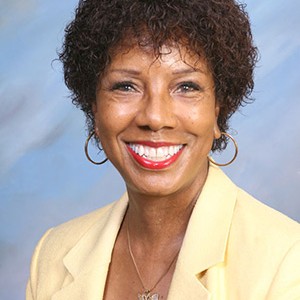
Edwina McKinney
Tell me a little about your experience
I have spent 25 years in the project management and process improvement areas serving as a consultant, facilitator and trainer. I work with a wide range of customers assisting them in their efforts to improve work productivity and business results.
Seventy-five percent of my consulting work is to teach and facilitate project teams. I work with a wide variety of customers and industries – from the world’s largest companies to the world’s smallest companies.
I interact with senior executives who want to improve business operations and specialized projects. My own work experience includes CBS, United Airlines, Control Data, and 17 years with IBM. I was formally trained through IBM for the work I do.
Why is learning about team building and communications important in project management?
The original developers of the SDSU Project Management Certificate Program had seen me teach at their companies and realized those classes and topics would benefit the program. Technical projects are frequently handled well, it’s the social side (ineffective project teams and lacking soft skills) that cause problems for teams and organizations.
What is it about team building and HR communications that most people don’t know?
Most people don’t know the wide variety of teamwork tools that assist in project planning, teach decision making, effective meetings, data gathering, and project performance reporting.
Communications is not just the oral conversations. It is the process required to ensure timely and appropriate generation, collection, distribution, storage, retrieval, and distribution of project information.
What will a student learn in your class?
In Team Building, participants will learn to:
- Identify the characteristics, behaviors and activities that build and support high performing project teams
- Learn appropriate team roles and responsibilities to maximize team and business results
- Analyze group dynamics and learn effective group communication skills
- Expand their knowledge of tools and techniques of interactive communication, effective meetings conflict management, and group decision making
In HR Management and Project Communications Management, participants will learn to:
- Identify project roles and responsibilities and learn the elements of creating a Project Human Resource Plan for projects
- Learn methods of obtaining appropriate team resources and improving the competency and interaction of all project stakeholders
- Determine information and communication needs of project stakeholders and learn to structure communications to satisfy stakeholder requirements by establishing a Stakeholder Registry and strategy and by developing a Project Communications Plan
- Identify activities for collecting and distributing project performance appraisals.
What are the highlights of the classes?
Highlights include practicing the skills discussed in class and being able to work with classmates on:
- Problem-solving
- Case study applications
- Team leadership
- Team roles/positions
- Teamwork analysis and effectiveness
- Meeting roles – leader, scribe, timekeeper, and presenter
- Different team groups each week
As a project manager – do you think like a project manager in your everyday life?
Yes, I think like a project manager especially in facilitating project teams. My many years with IBM have kept me being methodical in my approach, because I work with several different customer organizations at the same time, I must be:
- Organized
- Proficient at multi-tasking, time management
- Able to manage multiple priorities (all customers think they are the top priority)
- Team oriented – I am used to working in a team concept
- Focused on making groups of people successful when working together
What has been the most interesting thing about your profession?
The most interesting thing is the vast amount of exposure to a variety of customers – throughout this country and other countries. I have spent:
- 1 year training for Nike
- 1 ½ years training/facilitating teams for AAA (Auto Club)
- 2 years with the Metropolitan Transit System
- International training classes in Vancouver, B.C.
- Training in lead-lined vaults on Navy submarines
- Training/facilitating teams in Quonset huts for the Marine Corp
- Training all the 17 employees at Effie’s Fabrics in San Clemente
What is unique about your classes?
I believe the students have the opportunity to work with someone who has worked with literally hundreds (probably thousands) of project teams. During one year with IBM, I worked with 700 different customers. My experiences have structured me to expect and teach the right thing being done with project teams.
Another unique aspect is that we continually solicit information on student experience with projects to integrate the class with extensive “real world” discussions. The classes provide a myriad of facts, details, suggestions, recommendations, tips and techniques for managing project human resources (project teams) for formal and informal team activity.
What is the future of project management?
It is unlimited. Class growth and waiting lists for enrollment underscore the need for project management skills. Most organizations are realizing that the majority of their work is done by teams of employees working on critical organization projects which may ultimately control the company’s success. Many people have the title “Project Manager,” but have not actually had any training and that is where our program excels.
What kind of personality do you have to have to be a project manager?
You don’t need to have a certain kind of personality to be a project manager. You have to develop and implement the skill set required for project managers. The SDSU Project Management Certificate Project can help program participants learn those skills.




